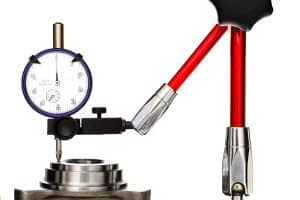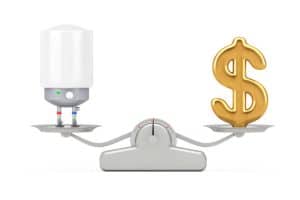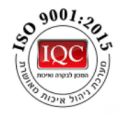Unlocking Insights: Flow Cytometer Price Guide
In the world of modern biology and medical research, flow cytometry has become an indispensable tool. This innovative technology enables scientists to examine and analyze individual cells with exceptional precision, offering insights into various cellular characteristics. In this blog, we will delve into the intriguing world of flow cytometers, focusing on flow cytometer price, its importance, and the factors that influence it.
What Is Flow Cytometry?
Flow cytometry is a cutting-edge technique used for the quantitative analysis of cells and particles in a fluid suspension. It allows researchers to assess several properties of cells simultaneously, such as size, granularity, and fluorescence. This method is vital in diverse fields, including immunology, oncology, microbiology, and genetics.
Understanding Flow Cytometers
Flow cytometers are the instruments that make flow cytometry possible. They are sophisticated devices designed to automate cell counting, cell sorting, and data acquisition processes. Flow cytometers come in various models and configurations, each tailored to specific research needs.
Flow cytometer systems can be broadly categorized into two main types:
Analog Flow Cytometers: These systems use analog electronics to process data and are generally less expensive. They are suitable for many routine applications and are favored for their affordability.
Digital Flow Cytometers: Fully digital systems are more advanced and offer superior data analysis capabilities. They provide higher resolution and are ideal for complex experiments, including the analysis of fluorescent proteins and cytometry antibodies.
The Importance Of Flow Cytometry In Cell Analysis
Flow cytometry plays a crucial role in cell analysis and offers several advantages:
Quantitative Data: Flow cytometry provides quantitative data about cell populations, enabling precise measurements and comparisons.
Cell Sorting: The ability to sort cells based on specific characteristics is invaluable in applications like stem cell research and immunology.
Fluorescent Protein Analysis: Flow cytometry allows for the detection and analysis of fluorescent proteins, which are essential in molecular biology experiments.
Multiplexing: Researchers can simultaneously measure multiple parameters, saving time and resources.
Core Facilities: Many research institutions have flow cytometry core facilities, making this technology accessible to a broader scientific community.
Long-Run Benefits: While the initial flow cytometer price may seem significant, its long-term benefits in terms of research productivity and data quality are undeniable.
Accessing Flow Cytometry Resources

To explore flow cytometer options and their prices, you can visit the websites of renowned manufacturers and suppliers. BD Biosciences, for instance, offers a wide range of flow cytometer systems suitable for various research needs. Additionally, you can reach out to core facilities at academic institutions, as they often provide access to flow cytometry services at reasonable rates.
Flow Cytometer Price Factors
Flow cytometer prices can vary significantly based on several factors. Here are the key considerations when evaluating the cost of these systems:
1. System Type
Flow cytometers come in various configurations, from basic models to advanced systems. Basic systems typically have fewer parameters and come at a lower price point, while advanced systems offer more features, such as increased parameter detection and sorting capabilities. The type of system you choose will significantly impact the flow cytometer price.
2. Features And Capabilities
Different flow cytometer systems offer various features, such as cell sorting, data acquisition, and fully digital systems. Systems with advanced features often come at a higher cost. Consider your specific research needs when selecting features to avoid unnecessary expenses.
3. Manufacturer
Numerous companies manufacture flow cytometers, including industry leaders like BD Biosciences. The reputation and quality of the manufacturer can influence the pricing. It’s essential to balance your budget with the reputation of the manufacturer to ensure you get a reliable system.
4. Application
The application you intend to use the flow cytometer for can impact the cost. Systems designed for specialized applications, such as fluorescent proteins or cytometry antibodies, may have a higher price tag. Evaluate your research goals and opt for a system that aligns with your specific needs.
Average Flow Cytometer Costs

To provide a rough estimate, let’s delve into the average flow cytometer costs:
- Basic Flow Cytometer: Entry-level models with minimal features can cost between $50,000 to $100,000.
- Mid-Range Flow Cytometer: These systems offer more parameters and capabilities and typically range from $100,000 to $300,000.
- High-End Flow Cytometer: Advanced systems with cell sorting and multiple parameters can exceed $300,000, with prices sometimes reaching $500,000 or more.
Calculating Total Cost Of Ownership
Considering the total cost of ownership is crucial when analyzing flow cytometer prices (TCO). The TCO includes not only the initial purchase price but also ongoing expenses like maintenance, reagents, and service contracts. These ongoing costs can significantly impact your budget, so factor them into your decision-making process.
Accessing Flow Cytometer Pricing
To obtain accurate flow cytometer pricing, visit the manufacturer’s website or contact them directly. Manufacturers often provide detailed information on their websites, including product specifications, configurations, and pricing options. Additionally, reaching out to a local distributor or contacting the manufacturer’s sales team can help you get a customized quote based on your specific requirements.
Long-Term Considerations
Investing in a flow cytometer is a long-term decision. While the upfront cost is significant, it’s essential to assess the value it brings to your research or clinical work. Consider the potential for increased productivity, data quality, and experimental capabilities when evaluating the flow cytometer price.
Therefore, understanding flow cytometer prices requires careful consideration of system type, features, manufacturer, and application. To make an informed decision, assess your research needs, budget constraints, and long-term goals. Whether you choose a basic system or an advanced flow cytometer, this technology remains an invaluable asset for cell analysis and sorting in various scientific fields.
In Conclusion
Understanding flow cytometer price and its significance in cell analysis is crucial for researchers and institutions involved in biological and medical research. Flow cytometry has revolutionized the way we study and understand cellular processes, making it an indispensable tool in modern science.
Whether you are looking for cost-effective solutions or advanced, fully digital systems, there is a flow cytometer suitable for your specific research requirements. So, explore your options, harness the power of flow cytometry, and unlock new insights in cell biology and beyond.


